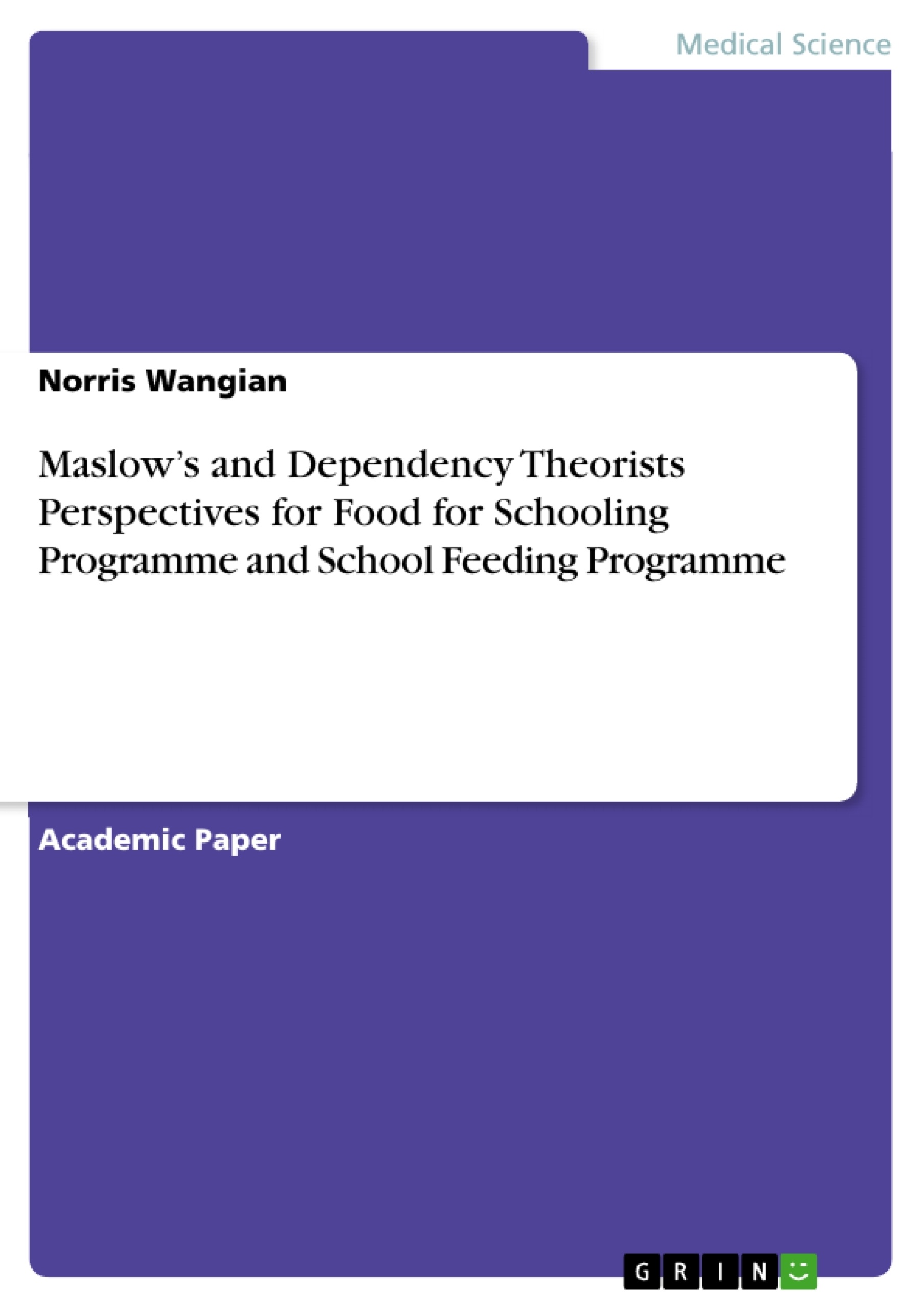This essay argues that a ‘School Feeding Programme’, that practises ‘Onsite Feeding’ can achieve Sustainable Development Goal 4, i.e. quality equitable life long learning for all learners. Conversely, a ‘Food for School Programme’ can increase enrolment of both boys and girls, however, it might fail to achieve quality learning and, furthermore, can develop a dependency mentality. Moreover, food delivered as aid is often used to pursue donors’ interests so recipient countries should be monitored, to ensure such aid is carefully directed to priority areas to achieve maximum benefit. Failure can result in recipient countries facing unintended consequences.
According to Maslow’s Hierarchy of Needs theory, food is considered a basic physiological need and higher-ordered needs can only be achieved if the basic needs are met. In the education context, for learners to concentrate on learning and for educational institutions to achieve high-quality learning, learners’ physiological needs i.e. food and water must be met before delivering teaching and learning activities. Therefore, different countries introduced ‘Food for Education’ in a form of ‘School Feeding Programme’ and ‘Food For schooling Programme’ to achieve quality education and to redistribute food to poor families.
Table of Contents
- Introduction
- Food as a Basic Human Need
- Education Aid to Global South
- Food Aid for Education
Objectives and Key Themes
This essay critically analyzes the effectiveness of "Food for Education" programs, specifically comparing the "School Feeding Programme" and the "Food for Schooling Programme", in achieving quality education and addressing poverty in the Global South. It explores these programs within the framework of Maslow's Hierarchy of Needs and Dependency Theory.
- The significance of food as a basic human need in relation to education
- The potential benefits and limitations of "School Feeding Programmes" and "Food for Schooling Programmes"
- The role of aid in education, considering potential donor motives and the impact on recipient countries
- The importance of monitoring and directing aid towards priority areas for effective development
- The intersection of food, poverty, and education in affecting the quality of learning for marginalized students
Chapter Summaries
- Introduction: This section introduces the concept of "Food for Education" programs and their role in achieving quality education and combating poverty. It argues that "School Feeding Programmes" can be more effective than "Food for Schooling Programmes" in achieving Sustainable Development Goal 4 (quality education for all).
- Food as a Basic Human Need: This chapter explores the importance of food as a fundamental human need, referencing Maslow's Hierarchy of Needs and its implications for education. It argues that ensuring access to food is crucial for students' ability to concentrate and learn effectively.
- Education Aid to Global South: This chapter examines the role of international aid in education, particularly in the Global South. It highlights the potential for donor motives to influence the implementation and effectiveness of aid programs, potentially leading to unintended consequences.
Keywords
The main keywords and focus topics of the text include "Food for Education," "School Feeding Programme," "Food for Schooling Programme," "Maslow's Hierarchy of Needs," "Dependency Theory," "Sustainable Development Goal 4," "Education Aid," "Global South," "Quality Education," "Poverty," and "Unintended Consequences."
- Quote paper
- Norris Wangian (Author), 2021, Maslow’s and Dependency Theorists Perspectives for Food for Schooling Programme and School Feeding Programme, Munich, GRIN Verlag, https://www.grin.com/document/1064697



